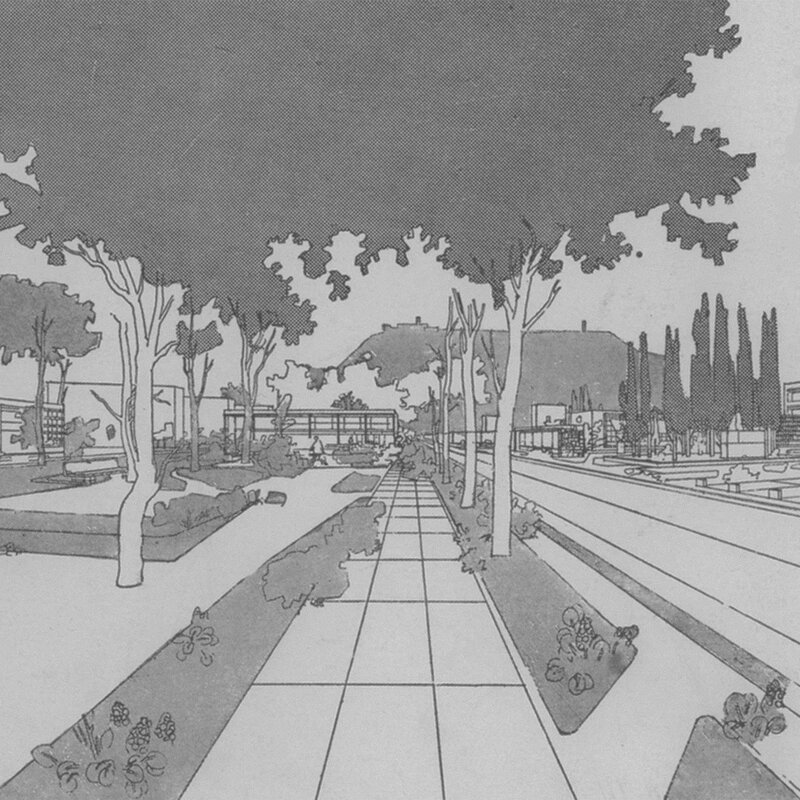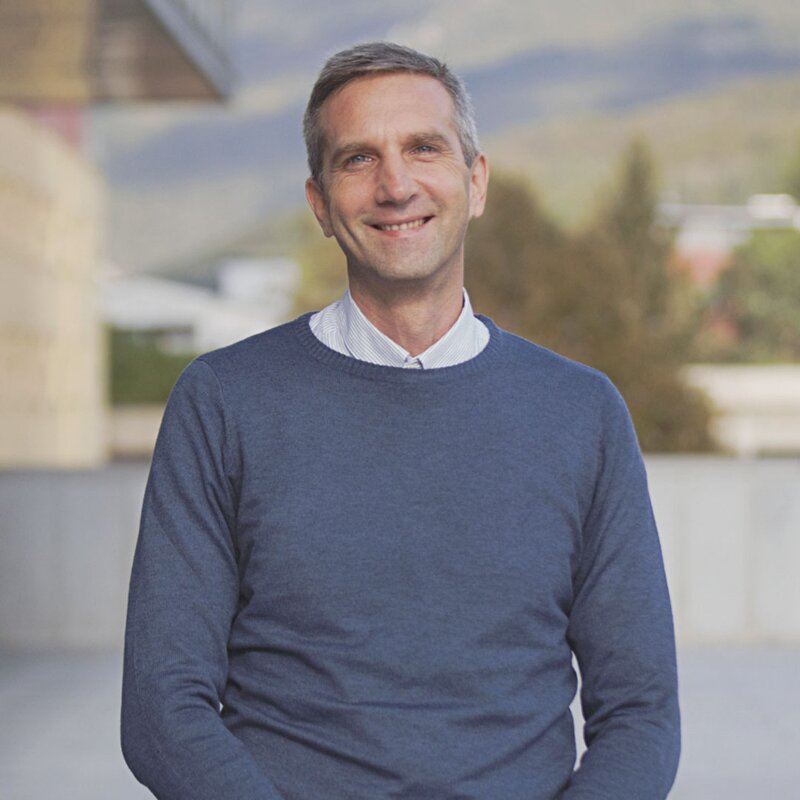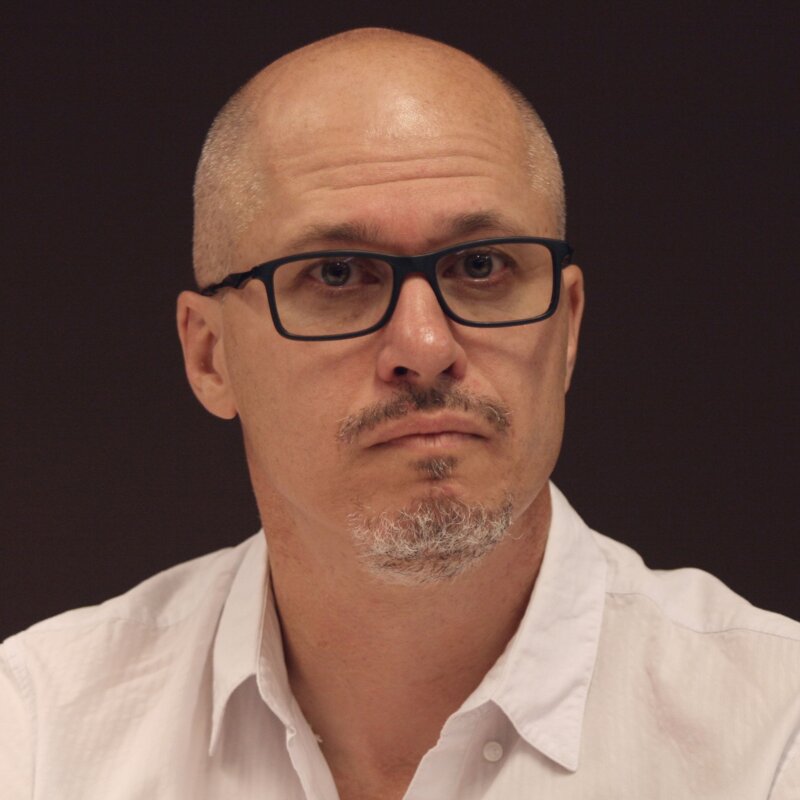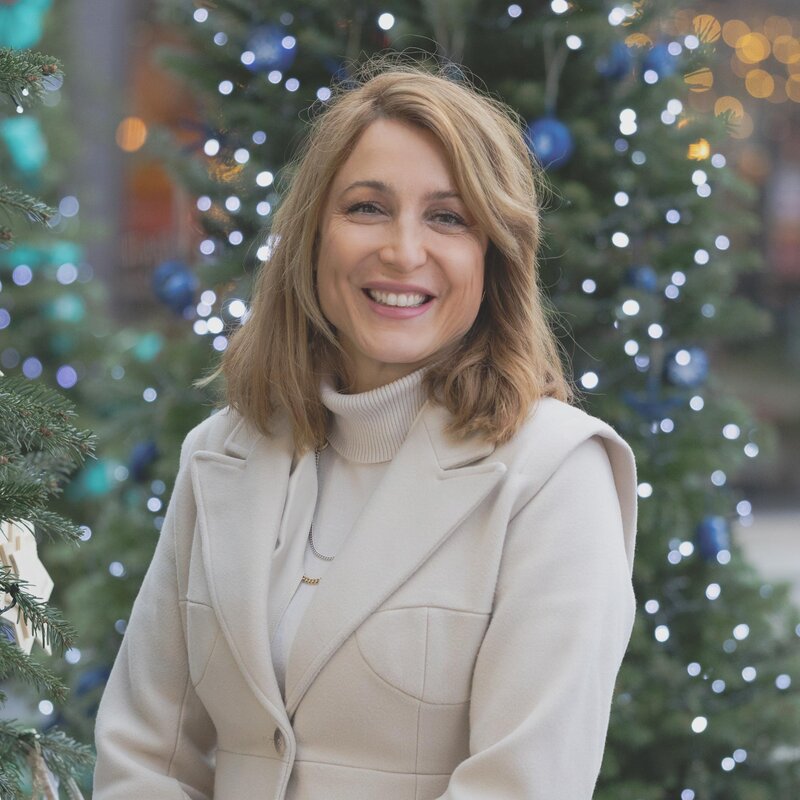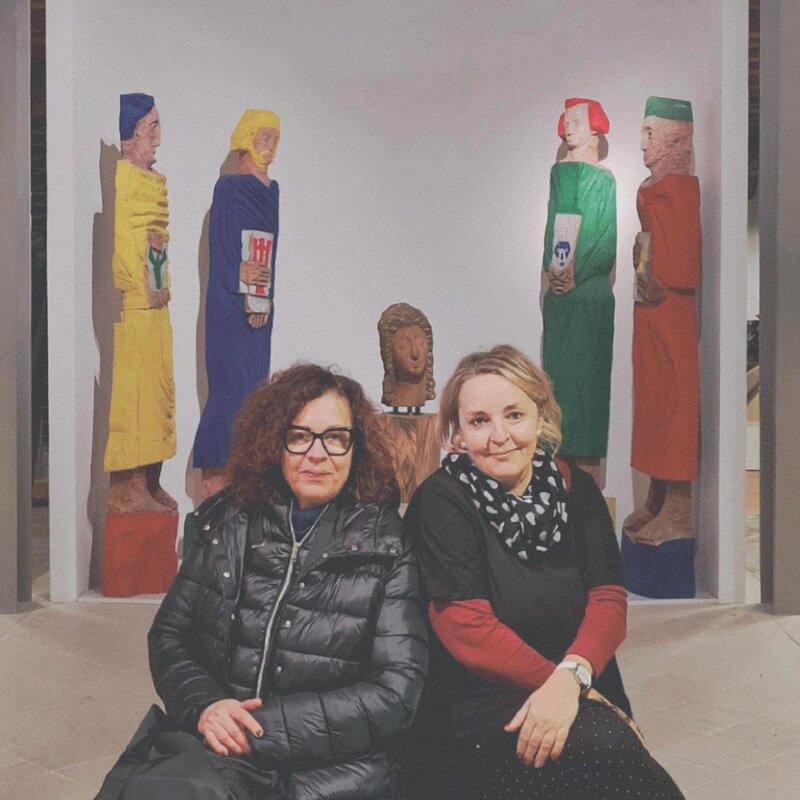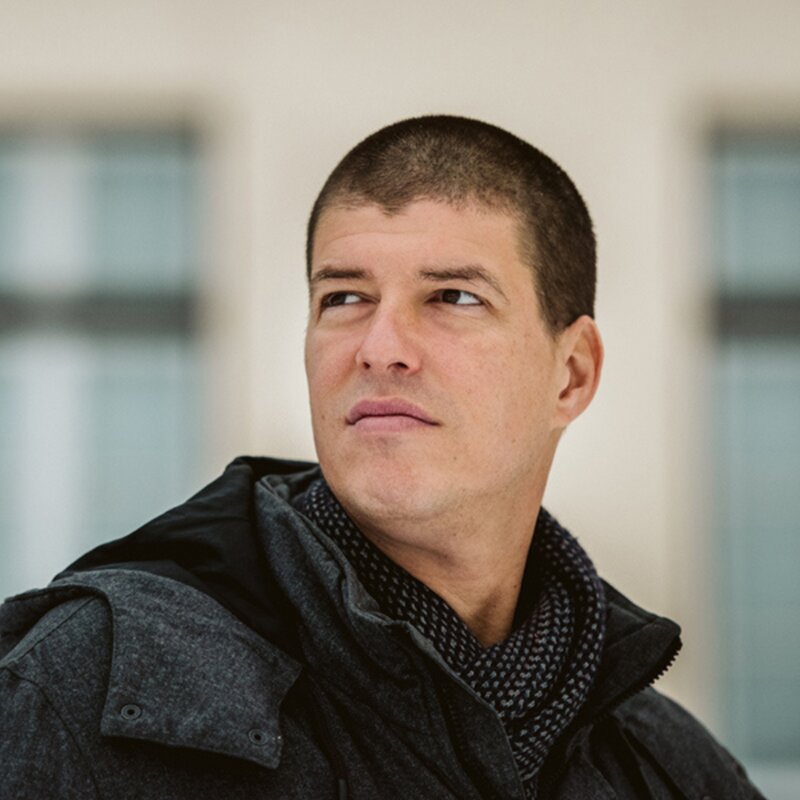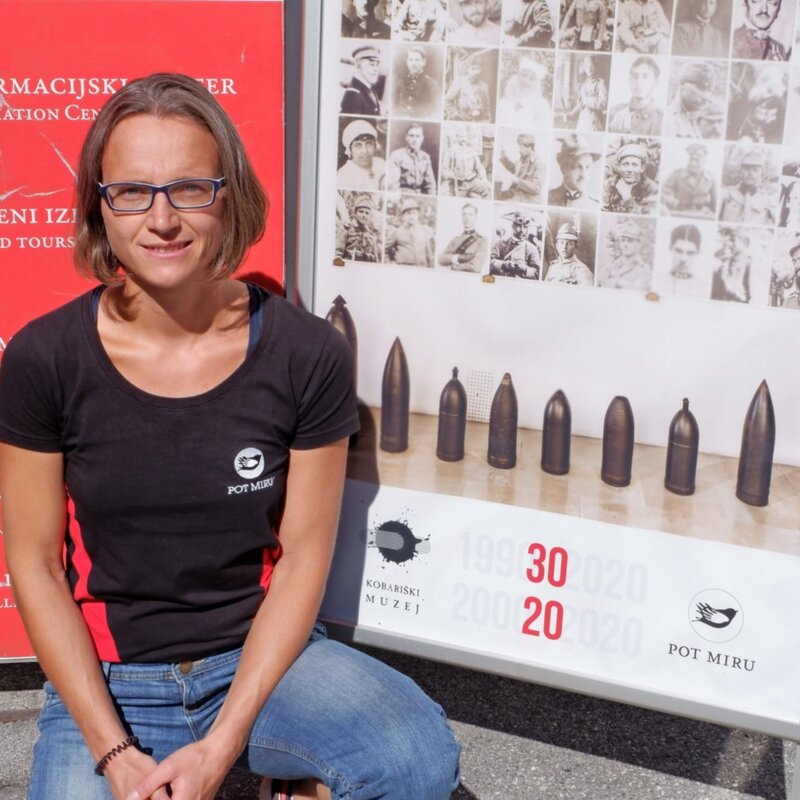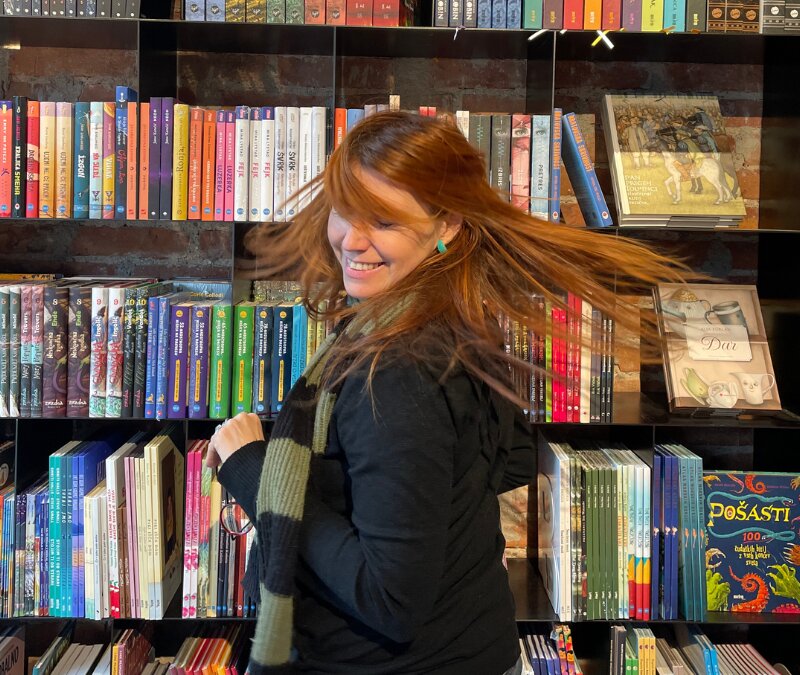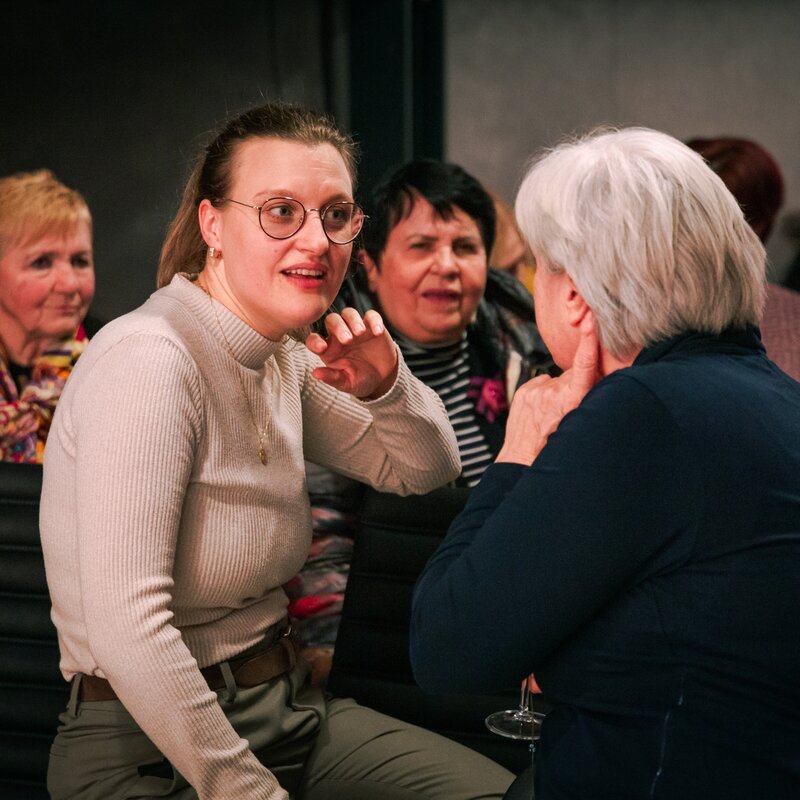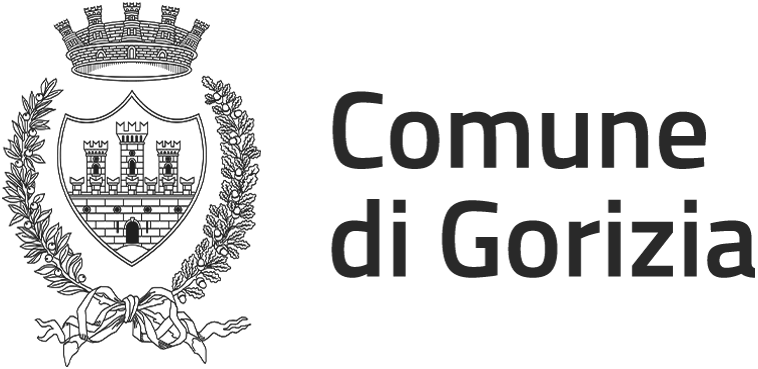12/7/2023

Aleksandar Hemon, the great writer of our time, appeared in front of a large audience in Nova Gorica on December 5 as a guest of the Goga publishing house and the City of Books Festival, and as part of the official programme of the European Capital of Culture 2025 Nova Gorica-Gorizia.
In a conversation with journalist Ervin Hladnik Milharčič at the France Bevk Public Library Nova Gorica, they walked through the book "This Does Not Belong to You", which was translated into Slovenian this year, and above all through the memoirs.
The book is a series of memoirs from the Sarajevo writer’s childhood, asking questions about how memory works, why we remember some things and not others. It was written in English, which Hemon mastered after the outbreak of the war in Bosnia forced him to stay in America, so it is also about language. His theory is that if you want to write sovereignly in a language, you have to have it in your subconscious. Initially, he could not write in Bosnian or in English, but when the decision was made, it was a snap. The blocks protecting the mother tongue broke and memories spontaneously flowed into English. “Just like we used to listen to rock’n’roll, the attraction was that we didn’t understand anything, but we learned the language anyway", says Hemon.
There is a fundamental difference with Proust, with whom Milharčič compared him and who turned out to be a writer who Hemon loves to read. Proust writes about a stable situation during which magical moments happen. And Proust has not lost his homeland, he has not experienced the social catastrophe that fragments society. Hemon, who has lost his homeland and experienced a catastrophe, is faced with how to reassemble the whole from the fragments.
Asked what he took from his native Bosnia to America to sell for his culture, the writer says that he took practically everything. Above all, the feeling of the middle class, who bought records, filled stadiums all over their homeland with music, went to the army and had the feeling that something important was happening. At this time, in his desire to free himself from the cult of personality and single-mindedness, he was forming aesthetic and political principles. The city he lived in had everything a city needs.
The conversation about how Saša transformed himself into Aleksandar Hemon, i.e. how he stepped onto American soil as a writer, brought into the conversation the words: agent, finding clients, payment, sales… The publication of the book "The Question of Bruno" brought him into the world of American literature, but Milharčič nevertheless suggests that in every fragment he sets himself up as a “loser”, but in the end he achieves a “happy ending”. Is this an American imperative? “I didn’t make anything up, the happy ending is inevitable. I’m a fan of life, I want to live as long as possible. And I want to live until the last moment, because maybe at the last moment someone will bring you an ice-cream,” the writer expressed his light and joyful mood during the warm welcome of the Nova Gorica audience.
Šejk or Kafka? Both. When your living room is in the line of a sniper aiming at you from across the river, you lose your freedom of action. If you survive, tragedy turns into comedy. “We can interpret life however we want.”
As an American, does he love America? He loves some parts of America. He doesn’t like imperial ambition, he does like the complexity of society; he hates fascist tendencies, he says monolithic culture is fascist propaganda, he respects the tradition of resistance, he appreciates safe places with interesting, learned people, like Princeton, where he teaches creative writing. Although evil is everywhere, he seeks what is good and what is loved. “Europe has organised its culture around a national identity, America doesn’t have that, but it has a consensual identity and a multidimensional society. Therefore, each individual has yet to learn what his or her own identity is”, concluded Aleksandar Hemon, adding somewhere in between questions from the audience that people who are exposed to art and culture on the path to finding their identity become better citizens. Hemon is expected in the European Capital of Culture in 2025 with the translation of his new novel.
(Klavdija Figelj)


